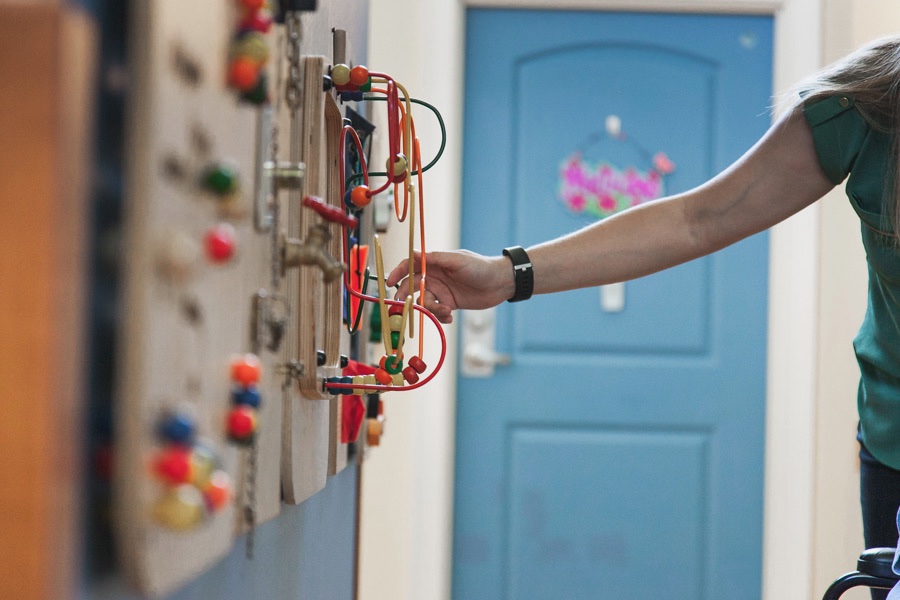For some seniors, the physical symptoms of Alzheimer’s disease may manifest themselves and become apparent before the mental signs. These physical changes may be the first tip-off that a senior has the disease or some other kind of memory problem. Other symptoms like refusing to participate in favorite activities could be a sign of memory loss or discomfort.
Below are six physical signs of Alzheimer’s disease to be aware of:
1. Difficulty with Common Tasks
People with Alzheimer’s disease have problems completing tasks that they could previously complete without really thinking about before the onset of the illness. If a senior begins to have trouble operating and handling simple things, like the TV remote or the microwave, it is a good idea to have them tested for memory problems.
2. Exhibiting Repetitive Behaviors
Those with Alzheimer’s may forget that they have completed a task and continue to repeat the behavior over again, sometimes three and four times. These may be tiny tasks in the initial onset of this disease but can progress into repetitively performing larger tasks or taking up more time. Is he or she getting up to feed a pet that they just fed? Are they checking to see if the door is locked time after time? Does he or she wash a dish, set it down, and then wash it again? These kinds of repetitive behaviors are typical examples of those with Alzheimer’s.
3. Shorter Steps and Less Control of Fine Motor Skills
While the loss of fine motor skills may be a red flag for a number of diseases, it is also a symptom of Alzheimer’s disease. Someone who is developing Alzheimer’s may find it challenging to accomplish the simple tasks that we do with our hands and take for granted, such as writing, buttoning clothing, or tying shoes.
There are several causes of this loss of fine motor skills due to Alzheimer’s. Some tasks that we can do “automatically” are stored in muscle memory. Similar to how those with Alzheimer’s can lose memory of people or events, they can also lose muscle memories. When the part of the brain that sends signals to the muscles is damaged, fine motor skills may be lost as well. Studies have shown that changes in overall walking tempo, such as taking shorter steps with a side-to-side shift, are an early sign of the disease.
4. Wandering Off and Getting Lost
According to a recent study conducted by the Alzheimer’s Association, 6 out of 10 people with the disease have a tendency to wander. This can mean getting lost in familiar places or the desire to walk away into unknown territory. Incidents have been reported at the initial onset of the disease, such as arriving late for an appointment without a reason or getting lost while in his or her hometown.
5. Increased Naptime and Insomnia
The damage to the brain that takes one’s memory may also take away their motivation and drive. Research has proven that those with Alzheimer’s disease may lose interest in life and become inactive – they may sit in a room and watch television for hours on end or become extremely lethargic.
The disease often causes sleeping problems and changes. While napping during the day becomes the norm, not sleeping at night also becomes a problem. Seniors’ day and night cycle may get out of whack, causing what is known as Sundowners Syndrome.
6. Poor Hygiene
Many of those with Alzheimer’s come to neglect their overall hygiene and appearance. A formerly smart and tidily dressed senior may become a disheveled and dirty person.
If you are concerned that your loved one may be suffering from Alzheimer’s disease or other age-related issues, it is best to visit a doctor and get their problems checked out.
Should they require additional care, our memory care facilities are the perfect home for your loved one to receive the care that they need. Read more about our memory care facilities here.






